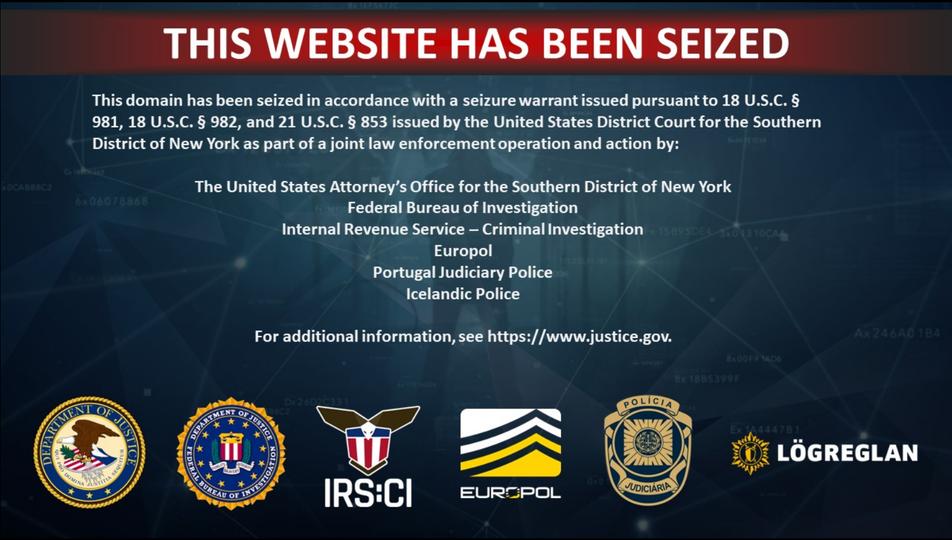NEW YORK — Samourai Wallet developer Keonne Rodriguez was sentenced Thursday to five years in prison for his role in creating a bitcoin mixing service that prosecutors say was used to launder $237 million in dirty money.
District Judge Denise Cote of the Southern District of New York (SDNY), who imposed the sentence on Rodriguez, said she believed imposing the maximum sentence for the crime to which he pleaded guilty – conspiracy to operate an unlicensed money transmitting business – was necessary for individual and general deterrence, adding that she had a “troubling reaction” to Rodriguez’s letter to the court submitted before his sentencing.
“The defendant engaged for several years in very serious antisocial criminal behavior. I do not understand that his letter reflects that he agreed to that,” Cote said during a roughly hour-long hearing at the federal courthouse in downtown Manhattan. “He identifies his motivation here as a desire to protect financial privacy. That’s good, that’s good. We all want financial privacy. But I don’t think that’s really what was at stake here…There is no acknowledgment in this letter of the criminal world for whom digital currency is a gift.”
Prosecutors echoed Cote’s concerns during the hearing, saying Rodriguez actively encouraged hackers, fraudsters and other criminals to use Samourai Wallet. He knew he was breaking the law, they said, because he had a six-page escape plan at home detailing how he would use cell phones, pay motels and country roads to evade law enforcement.
“The letter directly shows that the defendant did not accept what he did,” prosecutors told Cote. In their sentencing memo submitted to the court on Oct. 31, prosecutors urged Judge Cote to impose that maximum sentence, writing that the two men intentionally and knowingly laundered “the proceeds of drug trafficking, darknet markets, cyber intrusions, fraud, murder-for-hire schemes and a child pornography website” through Samourai Wallet.
In their own sentencing proposal, Rodriguez’s lawyers suggested a sentence of one year and one day in prison. Rodriguez’s lead attorney, Arnold and Porter’s partner Michael Kim Krouse, told the court that Rodriguez, now 37, co-founded Samourai Wallet when he was an idealistic young man in his 20s, after spending his entire life hearing family stories about how his loved ones in Cuba lost everything.
The fact that Rodriguez voluntarily pleaded guilty, Krouse said, was proof that he was taking responsibility for his actions. He also reminded the court that Rodriguez had already paid the $6.3 million forfeiture agreement before his sentencing, which Krouse called “unusual.”
When it was his turn to address the court, Rodriguez said his letter “wasn’t perfect” but that he wanted to take the opportunity to speak directly to the court, without his lawyers writing it for him.
“I am truly sorry and I understand the seriousness of my crime. I am remorseful,” Rodriguez said. “I can honestly say that I will never break the law again. This experience was terrible.”
Despite pleas for leniency from Rodriguez and his lawyer, Cote remained unmoved.
“The letter indicated to me that you still operate in a world with moral blinders,” she said before handing down the 60-month sentence. In addition to Rodriguez’s prison sentence, Cote imposed a three-year probation period upon his release, as well as a $250,000 fine — despite his lawyer’s protests that Rodriguez and his wife had “no money left” after paying the forfeiture. Cote ordered that if Rodriguez were to work during his sentence through the UNICOR program, 50 percent of his monthly earnings would be taken and put toward paying his fine. Upon his release, Cote ordered that 25 percent of Rodriguez’s gross monthly income be garnished until his fine is paid.
Rodriguez and fellow Samourai Wallet developer William Lonergan Hill were arrested last April and charged with conspiracy to commit money laundering and conspiracy to operate an unlicensed money transmitting business. Although the two men fought the case for more than a year, they reached a surprise deal with prosecutors in July, agreeing to plead guilty to the less serious unlicensed money transmission conspiracy charge in exchange for dropping the money laundering conspiracy charge — which carries a maximum sentence of 20 years in prison.
The couple’s plea change came amid the trial of fellow developer Roman Storm, also in the Southern District of New York. Like Rodriguez and Hill, Storm – one of the developers of Tornado Cash, a once-popular crypto privacy tool – was charged with conspiracy to operate an unlicensed money transmitting business and conspiracy to commit money laundering, with an additional charge of conspiracy to violate international sanctions. A Manhattan jury found Storm guilty only on the charge of transmitting money without a license, without reaching a unanimous verdict on the other two charges. Prosecutors have not yet indicated whether they plan to retry Storm on the two stayed charges. Two of the prosecutors in Storm’s trial, including Assistant U.S. Attorney Nathan Rehn — one of the lead prosecutors in the trial against former FTX CEO Sam Bankman-Fried — were present in the courtroom for Rodriguez’s sentencing.
Hill is scheduled to be sentenced by the same judge on Nov. 19, after the judge postponed the hearing originally scheduled for Friday.
UPDATE (November 6, 2025, 6:05 p.m. UTC): Adds additional details, notes Hill’s hearing has been postponed.




